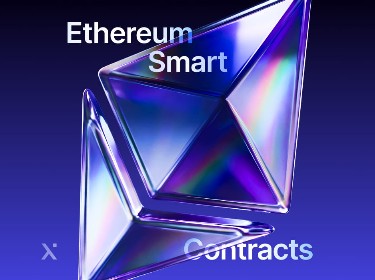Having transcended its entertainment roots, the metaverse is now making significant strides in more serious and demanding directions, among which the industrial metaverse stands out as a particularly promising area that is slowly but surely expanding its influence.
Despite its novelty, the industrial metaverse has already established itself as a sophisticated and powerful tool that can boost a wide range of manufacturing processes and elevate employee safety and workplace conditions.
This early success paves the way for its significant growth, and the global industrial metaverse market is projected to reach a value of $170.12 billion by 2030.
But what is the industrial metaverse and how exactly do companies stand to benefit from its implementation?
Read on to delve into the fundamental aspects of the industrial metaverse, its advantages and opportunities, and explore the various sectors and methods in which it can be effectively employed.
What is the industrial metaverse?
The industrial metaverse is a digital environment that allows businesses to simulate, visualize, and interact with their real-world manufacturing processes. It combines a wide spectrum of advanced technologies such as virtual and augmented reality, artificial intelligence, and various other tools to create immersive and interactive models of industrial operations.
By leveraging digital twins and AI-driven insights, companies can optimize production efficiency, reduce downtime, and enhance quality control. This holistic approach also facilitates remote collaboration and training, enabling teams to work seamlessly across different locations.
AI development services are essential in building these intelligent systems, providing the algorithms and models that drive automation, predictive maintenance, and real-time decision-making within the industrial metaverse.
Why is the industrial metaverse important?
In the industrial metaverse, manufacturers can create virtual replicas of their real-world operations and leverage a unique platform for in-depth analysis, experimentation, and optimization. This virtual environment is risk-free and contributes to the development of more innovative and efficient approaches to managing and refining industrial processes.
What is more, the industrial metaverse allows companies to swiftly adjust to evolving situations, solve problems with greater efficacy, and stay at the forefront of a continuously advancing technological world. This capability is important for driving industrial transformation as it incorporates digital innovations directly into the fundamental aspects of industrial operations, thereby promoting progress and efficiency.
New to the metaverse realm? Explore our comprehensive metaverse guide that covers the essentials of this exciting concept
The current state and future prospects of the industrial metaverse
The industrial metaverse has drawn the attention of numerous businesses and leading market entities who have executed thorough research into its potential, adoption rates, applicability across domains, and future prospects.
According to the World Economic Briefing Paper 2023, developed in partnership with the University of Cambridge, industries like automotive, aerospace, energy, and pharmaceuticals lead in adopting the industrial metaverse, with common challenges and opportunities.
The key insights from the report emphasize the importance of conducting initial proof-of-concept experiments within the broader context of metaverse platforms. They should also be complemented by the development of interoperable infrastructures and a strong focus on employee education. On top of this, fostering cross-disciplinary collaboration is equally important to fully leverage the potential of the industrial metaverse.
Meanwhile, Deloitte states that over 70% of surveyed executives expect a high adoption rate of the industrial metaverse in manufacturing within five years, with nearly 80% confident that it will transform research and development, design, and innovation, and enable new product strategies. This indicates the industrial metaverse’s potential for scaling up and its significant, multifaceted impact on organizations and society.
Overview of the technologies powering the industrial metaverse
![]()
The industrial metaverse operates on a foundation of cutting-edge technologies, each contributing significantly to its functionality. These include virtual and augmented reality, artificial intelligence and machine learning, the Internet of Things, 5G connectivity, blockchain, big data analytics, robotics, and cloud computing.
Let’s take a closer look at each of them.
Virtual reality
Virtual reality immerses users in a fully digital environment, which is needed for realistic simulation and interaction with manufacturing processes.
The technology enhances training, design, and visualization in the industrial sector. It also allows for the testing of virtual prototypes, thereby reducing the time and costs associated with physical prototyping.
As well as this, virtual reality in the industrial metaverse enables engineers and designers to rapidly refine designs, which results in greater quality of final products.
Augmented reality
Augmented reality overlays digital information onto the real world. This helps in maintenance, assembly, and training by providing real-time, contextual information.
AR also serves as a guide in complex assembly tasks to eradicate to the nearest minimum the number of errors and increase efficiency.
What is more, it is useful in remote assistance, where experts can guide on-site workers through complex tasks by overlaying instructions onto their field of view.
Discover our specialized augmented and virtual reality development services and learn how we can assist you in your AR/VR projects
Artificial intelligence and machine learning
In the industrial metaverse, AI and ML are responsible for analyzing huge amounts of data for predictive maintenance, process optimization, and decision-making to help industries anticipate problems and spot efficiencies early on.
In addition to this, artificial intelligence and machine learning services and solutions enable the automation of routine tasks, thus freeing human workers for more complex and creative tasks.
Plus, they have the capability to boost quality control by detecting anomalies and deviations in real-time and ensuring that high standards are consistently met.
Internet of Things
IoT connects physical devices to the digital world and allows for efficient data collection and monitoring to create accurate and dynamic digital twins of physical operations.
Chiefly, the Internet of Things solutions enable comprehensive monitoring of equipment health, which leads to proactive maintenance and minimizes downtime.
5G connectivity
High-speed, low-latency 5G networks are pivotal in the industrial metaverse as they establish seamless data transfer that is needed for maintaining a high level of interconnectivity and responsiveness.
This advanced network capability also makes the deployment of complex, data-intensive applications such as real-time remote control of machinery feasible by facilitating faster and more reliable data transmission.
Blockchain
Blockchain in the industrial metaverse underpins secure and transparent data exchanges and ensures unmatched data integrity.
Besides, the technology provides an immutable ledger system for tracking and verifying transactions in a decentralized manner.
Big data
Big data involves the management and analysis of extensive and complex datasets within the industrial metaverse and enables the identification of trends and patterns that are not easily discernible through traditional data analysis methods.
As well as this, big data services enhance the overall performance of the metaverse by integrating disparate data sources, providing a comprehensive view of operations, and facilitating data-driven decision-making.
Robotics
Robotics in the industrial metaverse upends the way businesses approach complex tasks and fosters human-robot collaboration.
Programmed with sophisticated AI algorithms and equipped with advanced sensors, robots execute tasks with unmatched precision in simulated environments that mirror actual operations. This capability allows companies to conduct thorough testing and optimization of manufacturing processes in a virtual space before real-world implementation.
Cloud computing
Cloud computing offers a robust, on-demand computing infrastructure that supports the intensive processing requirements of detailed simulations and complex virtual models.
Plus, cloud platforms facilitate global collaboration by allowing teams to easily access shared virtual environments and resources.
Take a look at how the PixelPlex team helped the client develop this next-gen metaverse platform
What are the benefits of the industrial metaverse?
The industrial metaverse offers lots of advantages, including — but not limited to — optimized operational efficiency, enhanced collaboration and innovation, more informed, data-driven decision-making, and improved safety and risk management.
Optimized operational processes
Creating digital twins of physical operations in the industrial metaverse empowers businesses to make better decisions, perform predictive maintenance, and optimize operations comprehensively.
Beyond this, they can swiftly identify and rectify inefficiencies, which results in improved performance and productivity.
Explore our comprehensive guide on digital twins in manufacturing to understand what makes this technology unique and valuable
Enhanced collaboration and innovation
The industrial metaverse offers a platform for collaboration across geographical boundaries. Teams can work together in virtual spaces, share insights, and develop solutions. Such a virtual environment fosters a greater innovation capacity as diverse perspectives and expertise converge in a singular and interactive space.
Data-driven decision-making
The industrial metaverse enables the processing and analysis of volumes of data.
Thanks to this, companies can gain insights into market trends, customer preferences, and operational bottlenecks, which empowers them to drive better-informed decisions and create more targeted and efficacious business strategies.
Improved safety and risk management
The industrial metaverse allows companies to simulate various operational scenarios, including potentially hazardous ones, without any real-world risk.
By training employees in these virtual environments, companies significantly reduce the likelihood of accidents and improve overall workplace safety.
Furthermore, the ability to foresee and plan for potential risks enhances the overall risk management strategy of an entire enterprise.
Get insights into virtual reality employee training and see what benefits it offers
What are the main use cases and applications of the industrial metaverse?
![]()
While the industrial metaverse is still in its early stages, numerous applications of this advanced technology have already been implemented and proposed.
Let’s explore some of the most captivating ones.
Prototyping and design
In the industrial metaverse, businesses can create and test virtual prototypes of products and machinery.
This process enables them to identify design flaws and make improvements without the high costs associated with physical prototyping, which makes it possible to establish a more efficient, cost-effective product development process, develop better-quality products, and substantially reduce time to market.
Training and simulation
The industrial metaverse provides a safe, realistic environment for employee training, which implies that workers can simulate operations with complex machinery or in hazardous conditions without any actual risks. This enhances skill development and preparedness while boosting safety and productivity in real work environments.
Remote collaboration and support
The digital environment fosters collaboration among teams situated in diverse geographic locations.
Experts can provide remote real-time guidance and support to on-site personnel and enjoy enhanced issue resolution efficiency without the necessity of travel.
Equipment maintenance and troubleshooting
With the help of the industrial metaverse, technicians can simulate maintenance tasks, troubleshoot equipment issues virtually, and gain a deeper understanding of equipment operations.
Besides, the industrial metaverse supports predictive maintenance, where potential problems are detected and addressed proactively to prevent equipment breakdowns.
Customer support and service
The industrial metaverse enhances customer support by providing interactive and immersive assistance.
Customers can receive real-time, 3D visual guidance for troubleshooting or product use, which leads to a more effective and satisfying support experience, resolves issues more efficiently, and even boosts customer relationships and loyalty.
Immersive marketing and sales experiences
Another prominent use case of the industrial metaverse worth exploring is immersive marketing and sales experience.
The metaverse offers innovative ways for marketing and sales through immersive virtual product demonstrations and showrooms. Customers can explore products in a highly interactive and engaging manner. This elevates their buying experience and aids in making more informed decisions.
Thus, the industrial metaverse enhances the customer experience, especially for complex or customizable products, by providing a detailed and realistic preview before any purchase is made.
Explore the basics, benefits, and applications of metaverse marketing with our in-depth blog guide
Supply chain management and logistics
The industrial metaverse provides advanced tools for managing complex supply chain development services.
Companies can simulate logistics scenarios, optimize routes, and manage inventories in real-time, which culminates in enhanced productivity and lower expenses. This ability is highly beneficial for foreseeing and addressing disruptions in the supply chain, thus guaranteeing more efficient and uninterrupted logistics operations.
Virtual plant tours
Businesses can offer virtual tours of their manufacturing plants and facilities for stakeholders, investors, or customers who wish to understand the manufacturing process without physically being on-site.
Metaverse-powered virtual tours provide an immersive and detailed view of the plant operations, thereby promoting transparency and fostering trust. They also serve as an educational tool and give insights into the intricacies of industrial processes and the company’s commitment to quality and safety.
Check out these top 8 metaverse business opportunities worth exploring in 2024
What are the limitations of the industrial metaverse implementation?
Despite the numerous benefits and promises offered by the industrial metaverse, it remains imperfect, with certain limitations that hinder its broader adoption.
High implementation costs
Undeniably, the initial setup of the industrial metaverse requires substantial investment. This includes costs for technology acquisition, infrastructure development, and employee training.
For many companies, especially small to medium-sized enterprises, these expenses can be prohibitive, which in the long run might limit the technology’s widespread adoption.
And yet, while the initial setup is indeed costly, companies can explore partnerships and collaborations to share resources. In addition, adopting phased implementation strategies and pursuing government or industry-specific grants can contribute to more successful cost management.
Technical complexity
Integrating advanced technologies such as VR, AR, AI, and IoT into existing systems is a complex challenge.
Often, it requires significant technical expertise, which can engender integration issues. The necessity for specialized knowledge and skills becomes a barrier, especially for companies with limited IT resources.
To address this challenge, companies can either train their current staff or collaborate with specialized technology firms. Plus, the use of standardized platforms and modular systems can streamline the integration processes.
Data security and privacy concerns
The industrial metaverse involves managing large volumes of sensitive data.
Yet, safeguarding this data against breaches and cybersecurity threats presents challenges and potentially hinders the wider adoption of the industrial metaverse. Therefore, strengthening cybersecurity measures becomes fundamental. Implementing regular audits, investing in advanced security technologies, and training employees in data handling are key strategies to mitigate these concerns.
Interoperability issues
The diverse technologies within the industrial metaverse often come from different vendors and may not be inherently compatible. Achieving a decent level of interoperability between these systems is vital for seamless functionality but can be difficult to accomplish, thus impacting the overall success of the industrial metaverse.
Nevertheless, the implementation of open standards and protocols can improve the interoperability capabilities within the industrial metaverse. Companies can also work with technology providers to develop more compatible systems and encourage industry-wide collaboration for standardized solutions.
Closing thoughts
The industrial metaverse, while still in the early stages of revealing its complete capabilities, already offers significant benefits. These range from enhanced design efficiency to improved training and operational optimization — all of which have the potential to revolutionize the manufacturing landscape.
If you find yourself intrigued by the industrial metaverse and are contemplating venturing into this burgeoning field, feel free to contact our PixelPlex team for technical support and guidance.
At PixelPlex, we specialize in metaverse development services and offer bespoke consulting, engineering, integration, and security solutions to meet your specific business requirements.
Don’t remain on the sidelines — contact our blockchain company to embrace the metaverse now and become a driving force in your industry.




